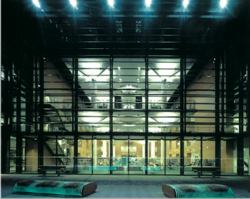SE Controls delivers natural-ventilation for Brighton library

Natural ventilation for the Jubilee Library in Brighton is provided using actuators for low-level windows and roof vents supplied by SE Controls and controlled by the building-management system.
A natural-ventilation system from SE Controls has been specified for the Jubilee Library in Brighton. It has been designed by architects Bennetts Associates with Lomax Cassidy & Edwards as part of a £45-million scheme to transform a run-down area in the heart of Brighton with the creation of a new square, hotel, residential, retail and leisure buildings. The library itself has been designed to represent the future of public libraries. Key elements in the client’s requirements were the building’s sustainability and the use of local climatic conditions to drive passive environmental control. Bennetts Associates therefore designed the library to feature recycled rain water, low energy consumption and low embodied energy and the use of heavy concrete mass to achieve thermal stability. Bennetts Associates also required a natural-ventilation system to assist mechanical systems and provide passive night cooling for the main library hall. SE Controls provided a system of actuators fitted to low-level windows along the front façade and roof vents. They are driven open by the building-management system in response to signals from internal temperature sensors. In the event of a fire alarm, all mechanical ventilation systems are shut down and passive systems driven closed. Battery back-up provides power if the mains supply fails.
Related links:








